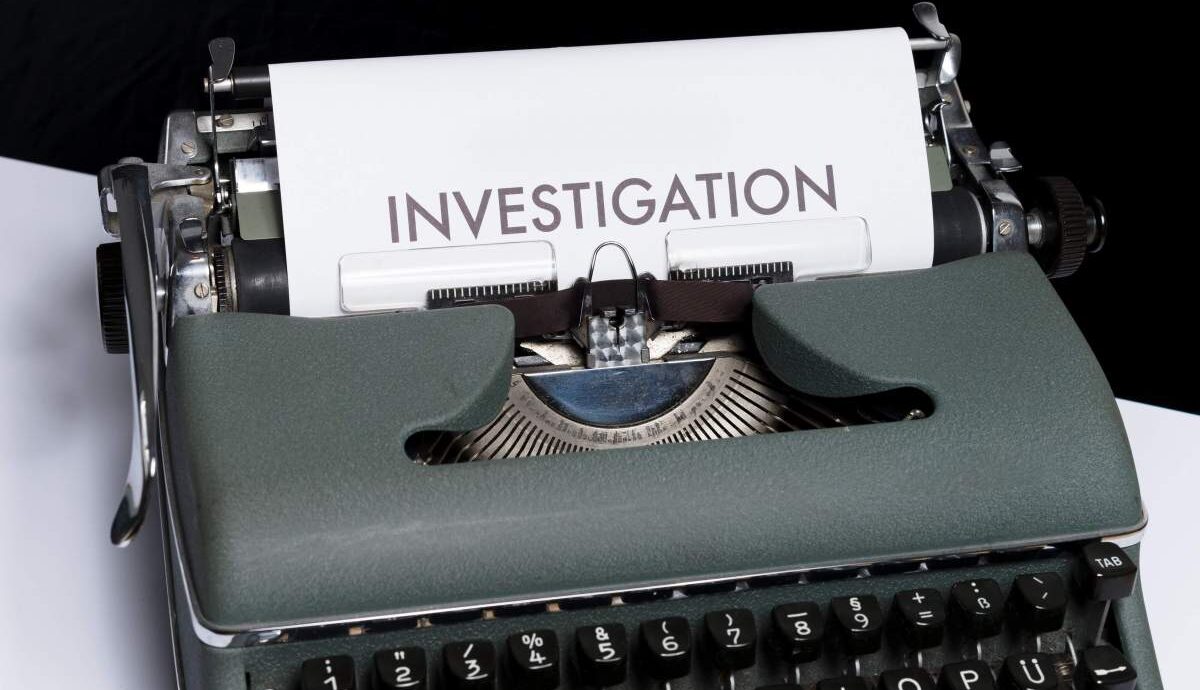Forensic Accounting and Investigation: Small Business Owner’s Guide to Spotting Red Flags
Forensic Accounting and Investigation is pivotal to business success. As a small business owner, navigating the financial landscape can feel overwhelming. You’re juggling a myriad of responsibilities, from managing employees to ensuring customer satisfaction, all while keeping an eye on your bottom line. One aspect that’s often overlooked, yet critically important, is the integrity of your financial practices. Enter the world of forensic accounting and investigation—an invaluable resource that can help you identify red flags, prevent fraud, and recover from financial irregularities. In this guide, we’ll delve deep into what forensic accounting and investigation entails, how to spot warning signs in your financial practices, and the strategies you can employ to safeguard your business.
Understanding Forensic Accounting and Investigation: What Every Small Business Owner Should Know
Forensic accounting and investigation is a specialized field that combines accounting, auditing, and investigative skills to analyze financial data for legal and fraud-related issues. Unlike traditional accounting, which focuses on maintaining and reporting financial records, forensic accounting dives deeper, examining financial discrepancies and uncovering potential fraud.
For small business owners, understanding forensic accounting and investigation is essential. It can empower you to maintain the integrity of your financial operations and protect your assets. At its core, forensic accounting involves gathering and analyzing financial evidence that can be used in legal proceedings, if necessary. This means not only identifying fraud when it occurs but also putting preventative measures in place to ensure it doesn’t happen again.
One of the most significant benefits of incorporating forensic accounting and investigation into your business practices is the peace of mind it provides. Knowing that you have systems in place to detect irregularities can reduce stress and free you to focus on other aspects of running your business. This proactive approach can save you time, money, and potential legal trouble down the line.
Additionally, forensic accountants can assist in various scenarios, including business valuations, partnership disputes, and bankruptcy proceedings. Their expertise is not limited to merely identifying issues; they can also provide actionable insights and recommendations to improve your financial systems and practices.
Ultimately, the sooner you familiarize yourself with the principles of forensic accounting and investigation, the better equipped you’ll be to navigate potential pitfalls. This knowledge serves as a foundation for your ability to spot red flags in your financial practices.
Common Red Flags in Financial Practices: Spotting Warning Signs
Identifying red flags in your financial practices is crucial for maintaining the health of your business. Forensic accounting and investigation provide the tools you need to recognize these warning signs before they escalate into significant problems.
One common red flag is irregularities in financial statements. For instance, if you notice inconsistencies between your profit and loss statements and your cash flow reports, it may indicate an underlying issue. Another red flag could be sudden changes in employee behavior, such as a previously trustworthy employee becoming secretive or defensive about financial matters. This behavioral shift can often correlate with financial misconduct.
Another area to scrutinize is vendor relationships. If a supplier suddenly begins submitting invoices that don’t match previous payments or if you notice unusual discrepancies in vendor contracts, it might be time to investigate further. Utilizing forensic accounting and investigation techniques allows you to analyze vendor transactions for signs of kickbacks or fraudulent invoicing.
Additionally, lack of documentation can signal problems. If your financial records are disorganized or if you frequently find missing documents, this can be a precursor to fraud. Forensic accountants specialize in uncovering these types of issues by tracing transactions back to their source and ensuring that all financial data is accounted for.
Finally, be vigilant about unusual transaction patterns. Significant withdrawals, high-value transactions that aren’t aligned with business activities, or repeated adjustments to financial records can indicate potential fraud. With the skills and techniques of forensic accounting and investigation, you can analyze these transactions more thoroughly and uncover any hidden issues.
The Role of Forensic Accounting and Investigation in Preventing Fraud: Strategies for Small Businesses
Fraud prevention is a critical component of running a successful small business. By integrating forensic accounting and investigation into your financial practices, you can significantly reduce the likelihood of fraud impacting your operations.
One effective strategy is to establish a strong internal control system. Forensic accountants can assist you in designing checks and balances that make it difficult for fraudulent activities to go unnoticed. This includes segregating duties among employees so that no single individual has control over all financial aspects, such as approving invoices, making payments, and reconciling accounts.
Regular financial audits are another essential strategy for fraud prevention. Engaging forensic accountants to conduct periodic audits can help identify discrepancies early on. These audits should be unannounced to prevent any opportunity for employees to conceal fraudulent activities.
Employee training is also a vital component of fraud prevention. Educate your team about the importance of ethical financial practices and the repercussions of fraud. A culture of transparency can go a long way in deterring potential misconduct. Encourage employees to report suspicious behavior without fear of retaliation, and ensure there are clear protocols for whistleblowing.
Moreover, utilizing technology can enhance your fraud prevention efforts. Implement accounting software that includes forensic accounting features to help track transactions and detect anomalies. Automated alerts can notify you of unusual activities, allowing for swift action before issues escalate.
Finally, having a solid plan in place for addressing fraud if it occurs is essential. This plan should outline the steps for investigation and recovery, including how to involve forensic accounting and investigation professionals. Being prepared can minimize the impact of fraud and help you recover more efficiently.

How to Implement Forensic Accounting and Investigation in Your Business: Steps for Effective Monitoring
Implementing forensic accounting and investigation into your business practices doesn’t have to be overwhelming. With a few strategic steps, you can create a robust framework for effective financial monitoring.
First, assess your current financial processes. Review your accounting methods, reporting practices, and any existing internal controls. Identify areas that may need improvement or adjustment, and consult with forensic accounting professionals for insights on best practices tailored to your business.
Next, set clear financial goals and performance metrics. This can help you measure the effectiveness of your financial strategies over time. Establishing benchmarks allows you to monitor progress and quickly identify any discrepancies that arise.
Once you have a clear picture of your financial landscape, consider integrating forensic accounting software that can assist in tracking and analyzing financial data. These tools can help you detect anomalies, generate reports, and provide insights that enhance your overall financial management.
Engage a forensic accountant or a firm specializing in forensic accounting and investigation to conduct a comprehensive review of your financial systems. Their expertise will help pinpoint vulnerabilities and provide tailored recommendations to strengthen your financial practices.
Finally, commit to ongoing monitoring and continuous improvement. Financial landscapes change, and so do potential threats. Regularly revisit your financial strategies and practices, making adjustments as necessary. Continuous training for your employees on the importance of financial integrity will also foster a culture of accountability.
Recovering from Financial Irregularities
When financial irregularities occur, the ability to recover swiftly is vital for maintaining your business’s health. Forensic accounting and investigation play a crucial role in this recovery process, allowing you to address issues head-on and fortify your operations against future challenges.
The first step in recovery is to conduct a thorough investigation into the financial irregularities. Engaging forensic accountants can help uncover the full scope of the issue. Their expertise will provide clarity on what happened, how it occurred, and the extent of the financial impact.
Once you have a clear understanding of the situation, it’s essential to communicate transparently with stakeholders, including employees, investors, and clients. Honesty fosters trust and shows your commitment to rectifying the issue. Developing a communication strategy will ensure that all parties are informed and reassured about the measures being taken.
Next, you must create a remediation plan that outlines the steps for recovery. This plan should incorporate insights gained from the forensic investigation and address the underlying vulnerabilities that allowed the irregularities to occur. Implementing new internal controls and revising existing financial practices will be key to restoring confidence in your operations.
In addition to these measures, consider seeking legal advice if necessary. In cases of fraud, it may be essential to involve law enforcement or pursue legal action against perpetrators. A forensic accountant can assist you in gathering evidence that may be needed for legal proceedings.
Lastly, view this recovery process as an opportunity for growth. Analyzing the situation can provide invaluable lessons that will help you improve your financial practices and resilience in the future. By leveraging forensic accounting and investigation, you can emerge stronger and more equipped to navigate the complexities of financial management.
As a small business owner, you hold the reins to your financial destiny. By understanding the principles of forensic accounting and investigation, you can protect your business, spot red flags early, and ensure recovery from any irregularities. If you’re looking for expert guidance in forensic accounting, look no further. TAC Group is a Forensic Accounting Professional Firm with extensive experience in this field. We can help you navigate the complexities of your financial practices and provide tailored forensic accounting services for your business. Contact us today to learn more!










